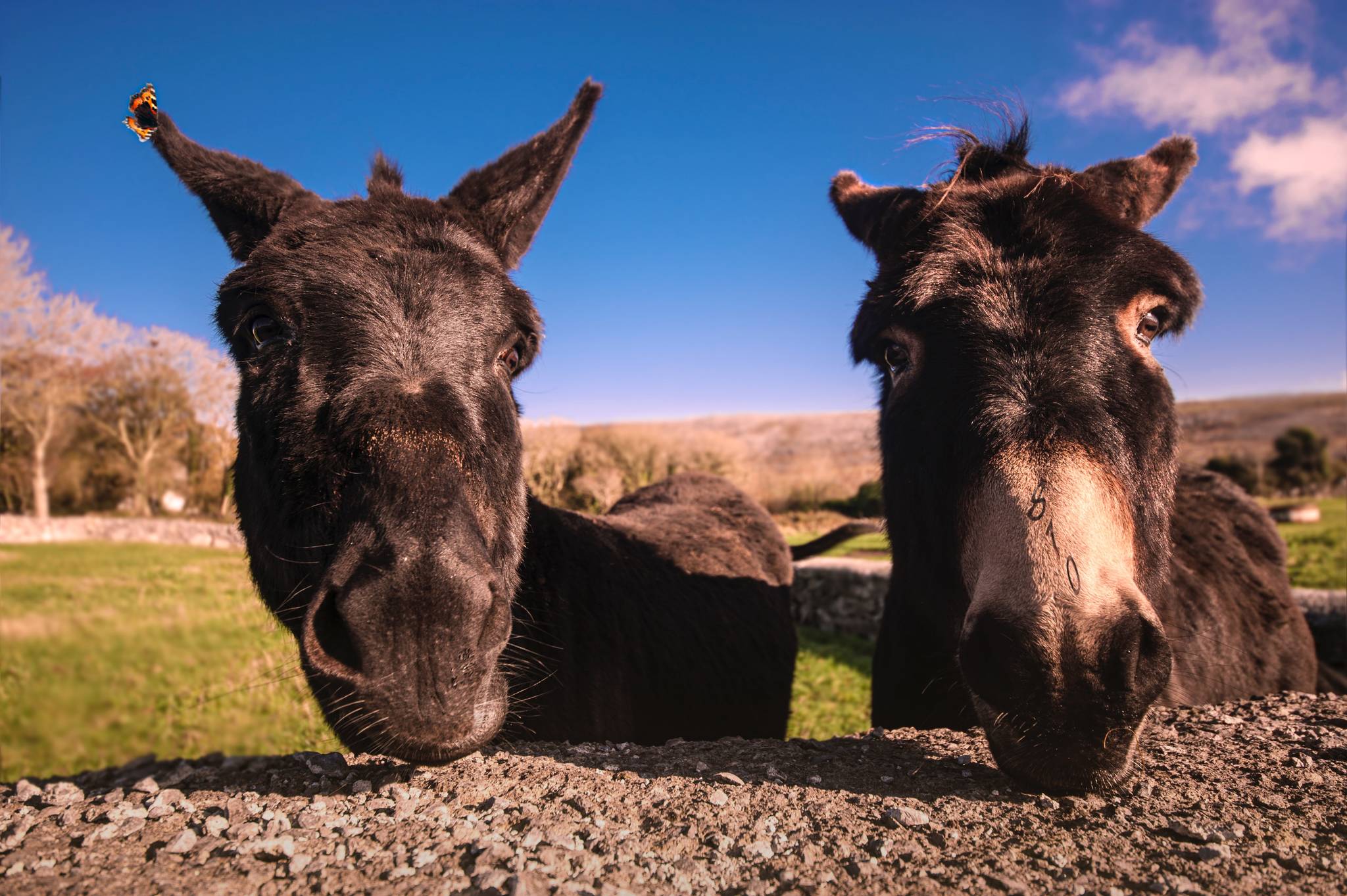I have recently become a caretaker of two donkeys. Magnolia and Bini arrived in Juneau last July to be trained to work in animal assisted therapy. It did not take me long to recognize that donkeys have a very specific way of traveling through life, a path, or in Hebrew, derech. The more I observed them, the more I was surprised to realize that in their ways, their derech, they were reflecting back to me themes and ideals often written about in Jewish texts and discussed in Torah study.
The Derech of the Donkey includes:
1. Have Friends
Donkeys bond with other donkeys as lifelong companions. Magnolia and Bini are BFFs who do everything together. Mercy be to the person who tries to take them out of eyesight of each other!
Friendship has always been an important theme of Jewish life and thought. Judaism defines friendship as one of the primary relationships in life, a tie at times exceeding that which bonds blood relatives.
Ecclesiastes, known in Hebrew as Kohelet, wrote, “Two are better than one because they have a good reward for their labor. For if they fall, the one will lift up his fellow; but woe to him that is alone when he falls, for he has not another to help him up” (4:9-10).
2. Be Kind
Donkeys are exceptionally attentive animals, able to pick up on the emotions of those around them and respond with gentleness. This attribute is what makes them such good therapy animals; they absorb stress from others and return kindness.
Shimon the Righteous said, “The world is based on three things — on the Torah, on the service of God, and upon acts of loving-kindness.” (Pirkei Avot 1:2)
Kindness isn’t optional in Judaism: reaching out to others is a key part of working to make the world a better place. Being kind is integral to what it means to be a Jew.
3. Stay Calm and Think
Most animals have a fight or flight reaction, donkeys do not. When confronted with a problem or a difficult situation a donkey becomes still and outwardly calm as they think the situation through and come up with the best way to handle it. It is quite remarkable to observe, but has cast the donkey as stubborn when in fact they are just calmly figuring out the best way forward.
Dr. Alan Morinis a popular lecturer on the Jewish Mussar tradition writes, “The calm soul is centered and rides on an inner even keel, regardless of what is happening within and around you. I liken it to surfing. Even as the waves are rising and falling, the calm soul rides the crest, staying upright, balanced, and moving in the direction you choose, though exquisitely sensitive to the forces that are at work all around. “
4. Stand With Courage
Magnolia and Bini are Mediterranean miniature donkeys, about 34 inches tall at the withers. In nature, they are prey animals. When on alert they puff themselves out and stand as tall as they can, bolstering their courage well beyond their physical attributes.
Rabbi Chaim Shmulevitz states, “Our strengths are greater than we realize. There is no measure to the strength of (people) when they arm themself with ometz (fortitude) and chazaq (courage). If they do, it’s in their hand to reach much more than their natural strengths would dictate.”
On the importance of courage Rabbi Yisrael Salanter wrote, “Courage comes from realizing that our role in the universe is unique but limited. Yet, it’s this limitation that allows us to excel beyond our wildest dreams. It allows us to pursue our destiny. And whether we know it or not, courage is the engine that allows us to move forward perpetually, with intentionality, with compassion, and with the knowledge that meaning is found through navigating the tribulations of living a full, active life.”
As nonsensical as it may seem, two little donkeys — non-kosher animals! — have enhanced my spiritual understanding. Then again, why not?! After all, in the Torah, it was a donkey that saw an angel in its path long before its owner did. (Numbers 22:20-35).
• Patricia Turner Custard is a member of Congregation Sukkat Shalom. “Living Growing” is a weekly column written by different authors and submitted by local clergy and spiritual leaders.

